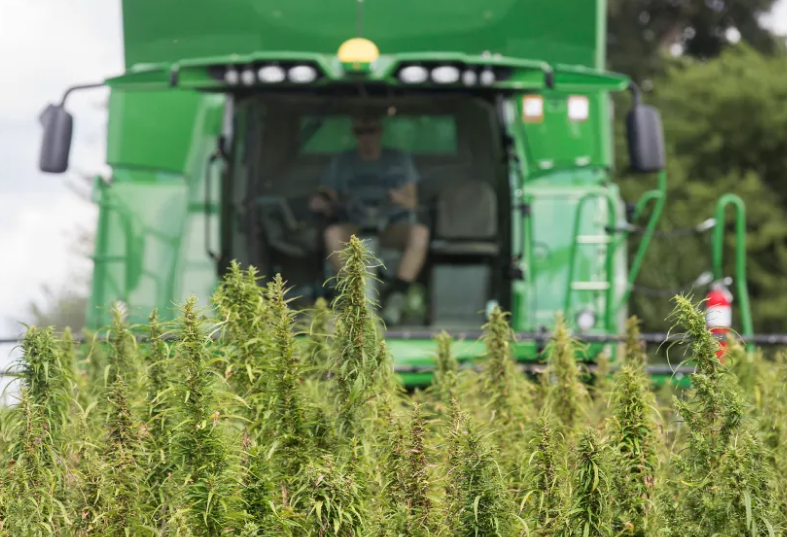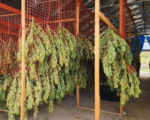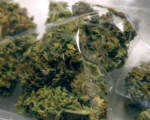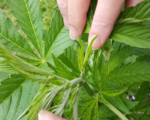A powerful group of top state lawyers just fired off a urgent call to Congress, warning that sneaky hemp products laced with mind-altering THC are flooding stores and putting people at risk. This bipartisan push could reshape how America handles cannabis rules, but will lawmakers act fast enough to stop the chaos?
Thirty-nine attorneys general from across the U.S., including Puerto Rico and the U.S. Virgin Islands, sent a letter on October 24 to key leaders in the House and Senate. They want Congress to redefine hemp and shut down what they call a dangerous loophole in the 2018 Farm Bill.
This move targets “dangerous and intoxicating” hemp-derived THC products that bad actors sell freely. These items, often marketed as legal hemp, pack a punch similar to marijuana but slip through federal cracks.
The letter, led by Arkansas Attorney General Tim Griffin and counterparts from Indiana, Connecticut, and Minnesota, highlights how these products harm public health. They argue that unclear rules let unregulated goods hit shelves, confusing consumers and law enforcement.
Griffin stressed that Arkansas already banned such items, and now it’s time for national action. The coalition, backed by the National Association of Attorneys General, includes both Republicans and Democrats, showing rare unity on this hot-button issue.
One key demand stands out: update the Farm Bill to separate true hemp from intoxicating knockoffs. Without this, they say, kids and adults face risks from untested substances.
Roots of the Hemp Loophole
The trouble started with the 2018 Farm Bill, which aimed to boost farming by legalizing hemp for things like rope, clothing, and oils. It defined hemp as cannabis with less than 0.3% delta-9 THC, the stuff that gets you high.
But clever makers found ways around it. They create products with other THC forms, like delta-8 or THCa, claiming they’re from legal hemp. This exploded into a massive market, with estimates from industry watchers putting it at over $100 billion in shadowy sales.
Critics say this loophole lets cartels and shady operators flood stores with potent, unregulated items. Reports from groups like the Marijuana Herald note how foreign syndicates, including some tied to China, exploit it to sell synthetic junk.
Back then, the bill’s goal was economic growth for farmers. Hemp production jumped, creating jobs in states like Kentucky and Colorado. Yet, no one predicted how it would spawn a wild west of intoxicating edibles and vapes sold at gas stations.
A recent court ruling added fuel: the U.S. Court of Appeals for the Fourth Circuit said some hemp-derived cannabinoids, like THC-O-acetate, are federally legal. This clashes with the Drug Enforcement Administration’s view, muddying waters further.
States have stepped in with their own bans, but attorneys general argue only Congress can fix the mess nationwide.

Public Health Risks and State Struggles
These products aren’t just a legal headache; they’re a health nightmare. Officials warn they often contain unknown chemicals, pesticides, or way more THC than advertised, leading to overdoses and hospital visits.
In places like Maine and Kansas, attorneys general report kids getting sick from candy-like edibles that look harmless. A 2023 study by the Centers for Disease Control and Prevention found a spike in poison control calls related to delta-8 THC, with over 2,300 cases in one year alone.
Without strict rules, these items bypass safety tests that legal marijuana faces in states like California. This creates unfair competition for regulated cannabis businesses, hurting their bottom lines.
Here’s how the issue breaks down by impact:
- Youth Access: Bright packaging draws teens, raising addiction fears.
- Economic Harm: Legal hemp farmers lose out to fake products.
- Enforcement Woes: Police struggle to tell legal from illegal goods.
States like Wisconsin are pushing their own bills to ban hemp THC, but patchwork laws leave gaps. The attorneys general’s letter points out that this loophole fuels black markets, even as some states legalize marijuana for adults.
Families feel the sting most. Imagine a parent buying what they think is safe CBD oil, only to find it’s loaded with intoxicants. This erodes trust in the system.
One attorney general noted in the letter that bad actors exploit the gray area to sell “Frankenstein THC products,” blending synthetics that evade drug tests.
Bipartisan Momentum and What’s Next
This isn’t a partisan fight. Leaders like Republican Tim Griffin and Democrat Keith Ellison team up, proving the issue crosses party lines. They represent diverse states, from red strongholds like Arkansas to blue ones like Minnesota.
The letter urges action through the Farm Bill reauthorization or budget talks. With the 2024 Farm Bill draft already floating amendments to curb intoxicating hemp, change could come soon.
Industry groups have mixed views. Some hemp advocates, like the U.S. Hemp Roundtable, defend non-intoxicating uses but agree on needing clarity. Others worry a crackdown could kill jobs in the growing sector.
A 2025 report from Reuters highlighted ongoing federal and state efforts, including a proposed bill by Senator Rand Paul to raise THC limits in hemp, which could complicate things.
Congress faces pressure as public outcry grows. If ignored, states might keep fighting alone, leading to more confusion.
Experts predict debates will heat up in 2025 sessions, with hearings likely. The attorneys general hope their united front forces quick reforms.
This push by 39 attorneys general shines a light on a hidden crisis in America’s cannabis landscape, where a well-meaning law twisted into a public safety threat. It reminds us that smart rules can protect innovation without letting chaos reign. As families grapple with easy access to potent products and businesses fight for fair play, the ball is in Congress’s court to seal this loophole and restore order.
Maria Garcia is an award-winning author who excels in creating engaging cannabis-centric articles that captivate audiences. Her versatile writing style allows her to cover a wide range of topics within the cannabis space, from advocacy and social justice to product reviews and lifestyle features. Maria’s dedication to promoting education and awareness about cannabis shines through in her thoughtfully curated content that resonates with both seasoned enthusiasts and newcomers alike.








